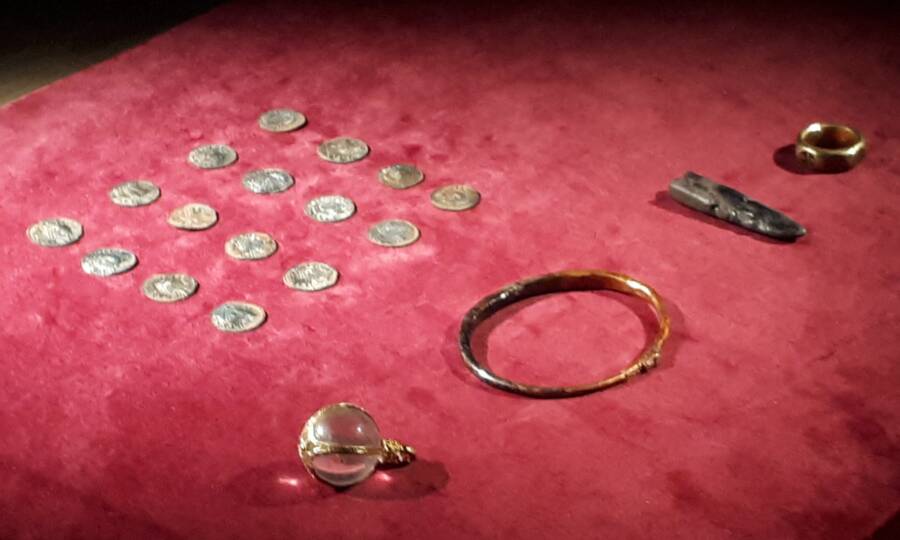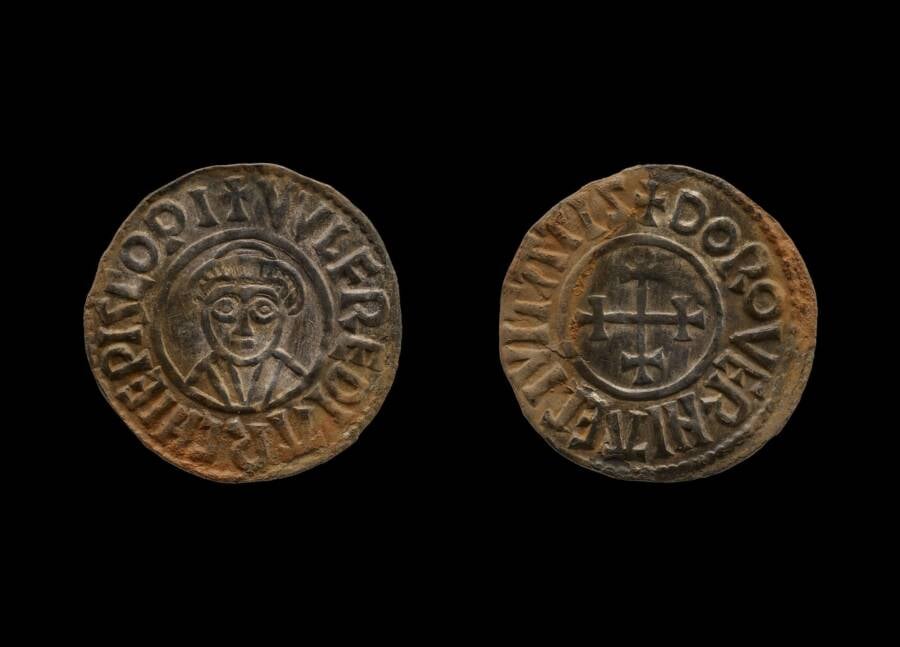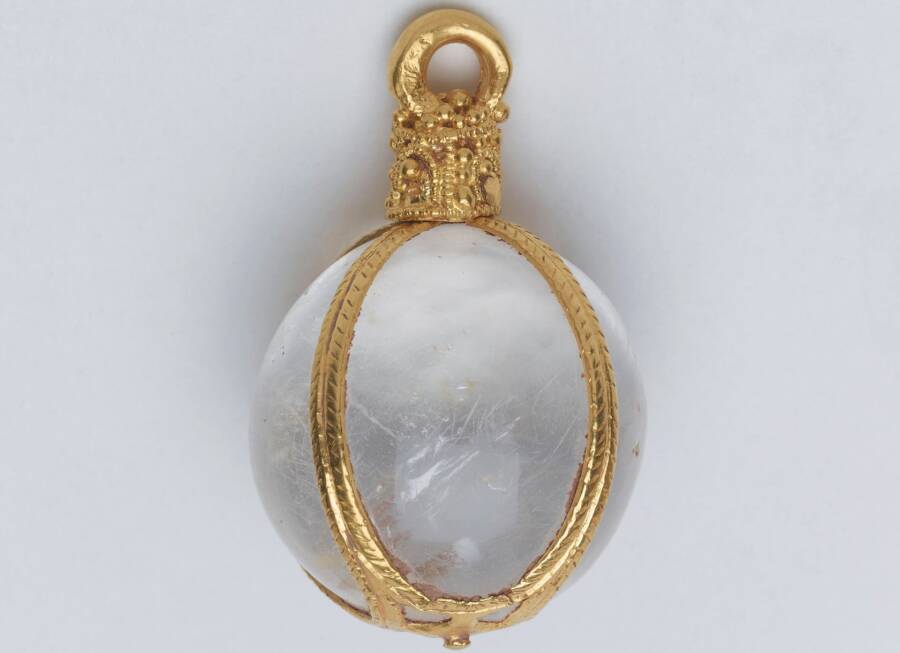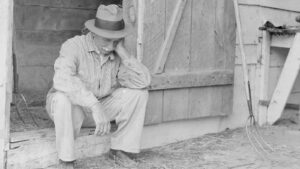Viking Fortune Turns to Legal Fiasco: Treasure Finders Headed to Prison
Imagine stumbling upon a fortune buried beneath your feet but deciding, in a moment of sheer human folly, to clutch it tighter than a miser in a snowstorm! Two metal detectorists in Herefordshire unearthed not just gold, but a ticket to history reimagined. But, as they say, when you play with fire, or in this case, treasure, you’re bound to get your fingers burnt. British law might dictate that such finds be reported – after all, who wouldn’t want to share a piece of history worth $3.8 million? Yet, here we are, with George Powell and Layton Davies facing potentially more than just a slap on the wrist for their failure to report.
Let’s take a moment to ponder, shall we? If you were walking through a field, metal detector in hand, beeping towards destiny, what would you do? Keep the treasure and hope for the best or follow the law, share the wealth, and bask in the legacy of your find? For these two treasure hunters, the allure of gold was just too tangible to leave to legal proceedings. But history, as always, remembers not just the treasure, but also the tales spun around it. Here we have not only a potential jackpot but also a twist of greed, self-interest, and the heavy hand of the law.
So, here’s the thing – their haul was no ordinary trinket stash. We’re talking about gold jewelry, ancient coins, and items dating back over a millennium, some linked to the very kings who shaped England’s story! But oh, what a mess our detectorists have found themselves in by keeping their discovery under wraps. It’s like watching a comedy of errors unfolds in real-time, except it’s no laughing matter with jail time on the line.
Shall we delve deeper into this saga, where history, bureaucracy, and human nature collide in the most unexpected of ways? Let’s dig in to find out what pitfalls and maybe even some laughs lie in store. LEARN MORE.
British law dictates that people must report finding “treasure,” which includes metal items more than 300 years old. This pair of metal detectorists didn’t.

SWNSTwo metal detectorists who found $3.8 million worth of historical treasure are facing jail time for their indiscretion.
Two British metal detectorists who came across a 1,000-year-old treasure haul and failed to report their discovery to local authorities are facing jail time because of it.
According to The Guardian, it all started when George Powell and Layton Davies were hunting for treasure in the fields of Herefordshire. After probing the remote area, they came across an unimaginable haul: a treasure hoard dating back to 1,000 years ago.
Among the treasure they found was gold jewelry, including a chunky ring, a serpentine arm bracelet, and a small crystal ball pendant. They also found 300 silver coins and ingots made out of pure silver. Even before they could verify the haul’s worth, it was clear Powell and Davies had hit the jackpot.
But such findings are governed by a stringent procedure under British law. Metal detectorists who uncover treasure are legally required to report their findings to the local coroner within 14 days of the discovery. After that, a Finds Liaison Officer writes up a report about how and where the treasure was found, and the detectorist is issued a receipt.
Once an official report of the treasure has been filed, the coroner will hold an inquest over the treasure, where the detectorist along with the land owner and site occupier can ask questions regarding the haul. Finally, the Treasure Valuation Committee gets involved, too, to give an official estimation of the treasure’s worth.
The detectorist is entitled to a share of the findings only if their discovery is lawful, and even then it could take up to a year for the reward to be processed and paid. Maybe that’s why Powell and Davies decided to keep the valuable haul to themselves instead of reporting their discovery.

British Museum/PAOne of the 300 old coins that Powell and Davies unearthed.
After visiting multiple experts around town to get their own estimate of the treasure’s value, the treasure hunters found that the crystal ball pendant was the oldest item of the haul, dating back to the 5th or 6th century. The ring and arm bracelet were a bit younger, coming from the 9th century. But the most valuable items in their loot were actually the coins.
Among the coins were extremely rare “two emperor” coins depicting two Anglo-Saxon rulers: King Alfred of Wessex and Ceolwulf II of Mercia. The two emperor coins were unofficially valued at more than $128,000 per coin by one expert who was contacted by the detectorists. In total, the Herefordshire haul was worth an estimated $3.8 million.
The old coins are historically significant because they give us insight into the situation in Wessex and Mercia, and how they were ruled when England was evolving into a single united kingdom.
Evidence of both kings on the two emperor coins suggests they had formed a pact. But it seems the alliance didn’t last long since the coins are so rare, suggesting King Alfred — the more prominent of the two figures — reneged on the deal.
Auto Amazon Links: No products found.














